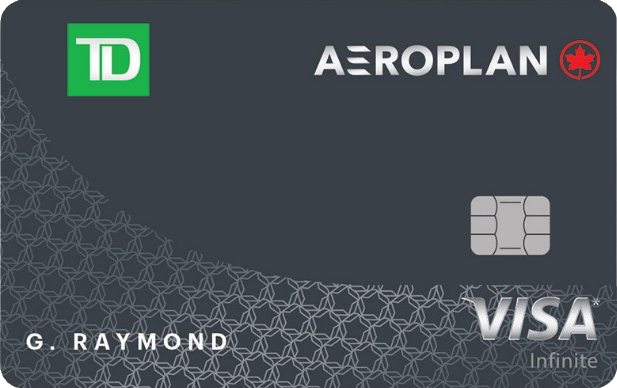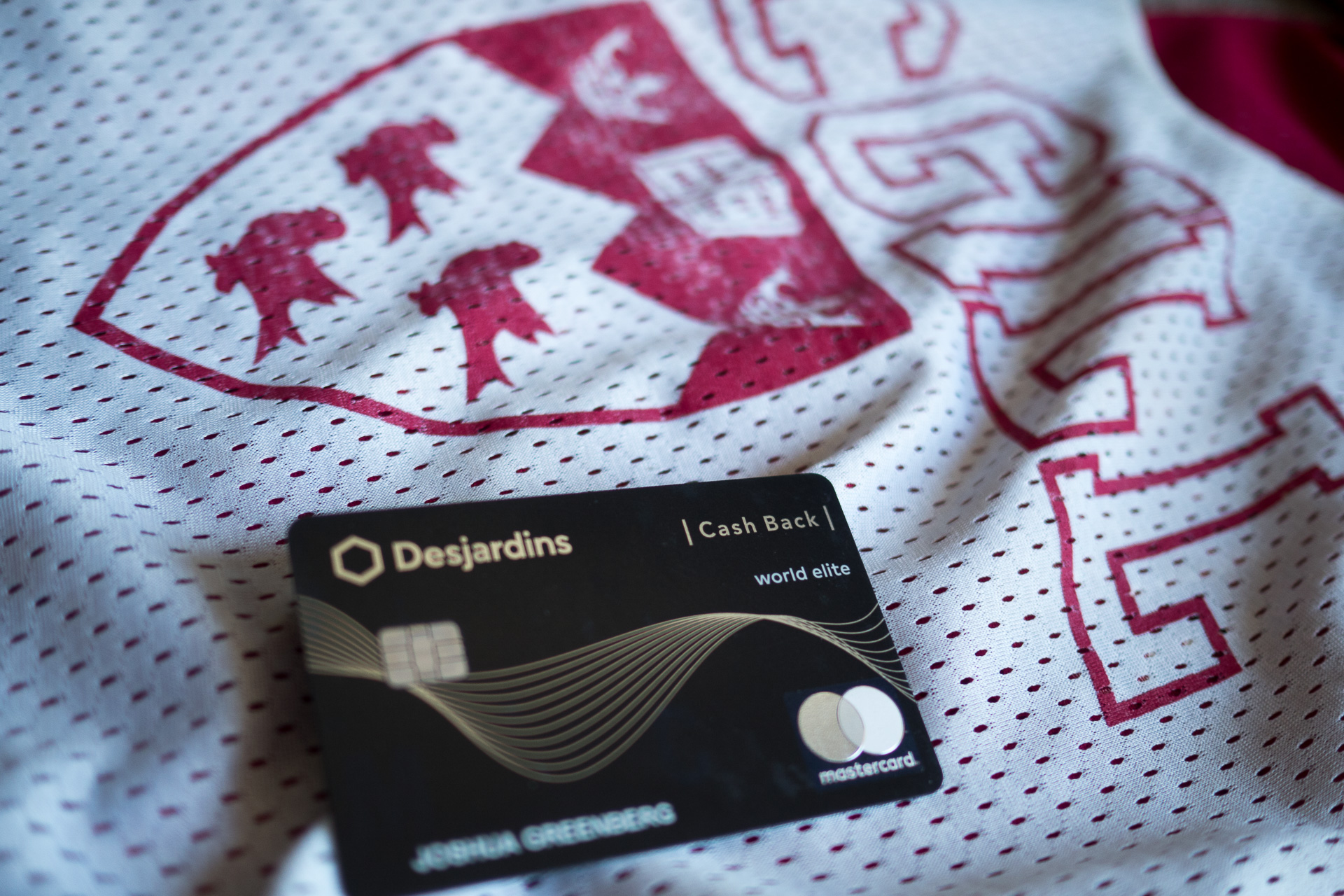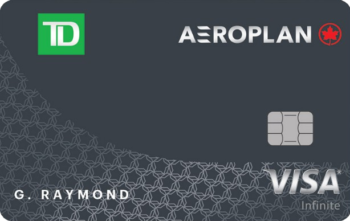In July 2021, Air Canada and its three partner banks – American Express, TD, and CIBC – have announced a spend-based incentive to help travellers qualify for Aeroplan Elite Status. Premium cardholders must spend $10,000 within a few months to receive Aeroplan 25K until the end of 2022, while existing members will have their status bumped to the next tier.
Unfortunately, two out of three issuers – TD and CIBC – made the offer unavailable in Quebec. They follow a handful of other banks in La Belle Province that choose not to award signup bonuses based on a spending threshold. Credit card companies put such policies in place due to consumer protection laws in the province.
Luckily, the legal fine print can sometimes work in favour of Quebecers, benefitting both award travellers and those who prefer to pay cash.
The Law: In the Spirit of Consumer Protection
Consumer rights in Quebec are governed by the Consumer Protection Act. The document outlines the rights and responsibilities of merchants and customers to ensure fair business practices.
From the 364 articles, a few dozen are dedicated to limiting consumer debt. People who are well-versed in personal finance may pay their bills in full and on time, but sadly, they only represent 70% of credit card users.
Quebec doesn’t want to encourage people to take on debt they cannot manage. The government has passed laws like Bill 134, which increases the monthly minimum payment on credit cards to 5% of the balance owed (and thus decreasing the balance carried forward, which accrues interest).

Other provisions of the Act restrict banks from granting credit limit increases without approval, as well as prohibit them from issuing loans without assessing creditworthiness.
When it comes to welcome bonuses, credit card companies are not prohibited from offering them to consumers. However, advertising spend-based incentives falls into somewhat of a legal grey area, defined by Article 245, which reads as follows:
“No person may, in any advertisement concerning credit, urge consumers to obtain goods or services on credit or illustrate goods or services.”
Banks interpret the law in different ways. Some may read the provision above as a restriction from offering welcome bonuses which have a minimum spending requirement. At the end of the day, luring applicants with oversized signup offers could be considered “urging consumers to obtain goods or services.”
In simple terms, people who get a credit card with a requirement to spend $10,000 within three months, but only have a salary of $2,000 per month, could be tempted spend more than they can afford just to get the points. Such behaviour leads to excessive indebtedness, which proves to be harmful to the economy in times of crises.
Greater good aside, there are two more legal articles which make advertising signup bonuses complicated for credit card issuers:
- Article 228: “No merchant, manufacturer or advertiser may fail to mention an important fact in any representation made to a consumer.” (For example, credit card issuers cannot neglect to mention a large spending requirement.)
- Article 232: “No merchant, manufacturer or advertiser may, by any means whatever, put greater emphasis, in an advertisement, on a premium than on the goods or services offered.” (For example, they cannot advertise a “free” lot of 100,000 Aeroplan points, while glossing over the regular details about the credit card, such as everyday earning and cardholder benefits.)
Strategies that Credit Card Issuers Take
The cost of complying with the law prompts banks to reconsider their Quebec offers.
Some issuers decide to market their credit cards the same way across the entire country. Others exclude spend-based requirements from their bonuses or replace them with different conditions. Finally, a select few companies exclude the province from bonus offers, or don’t allow Quebecers to get the cards at all.
Same Offers Across Canada
American Express offers the most lucrative points-earning opportunities in Canada. Luckily, Amex sign up bonuses are available to Quebecers, as are spend-based bonus offers targeted towards existing cardholders.
In addition, four of the big five banks – RBC, CIBC, Scotiabank, and BMO – advertise offers with a minimum spending requirement in Quebec the same way as in the rest of Canada. The one unfortunate exception is the recent Aeroplan status bump promotion, which is unavailable to CIBC Aeroplan Visa Infinite Privilege cardholders in Quebec.
Aside from such minor inconveniences, the credit card landscape in Quebec houses enough opportunities for the savvy traveler.
Different Offers in Quebec
There are two large issuers that publish Quebec-specific welcome bonuses. Sometimes, these differences prove to be advantageous.
TD has taken the strategy of awarding customers for keeping the card open for a set period of time. For example, in July 2021, the TD Aeroplan Visa Infinite Card offers 20,000 Aeroplan points and a Buddy Pass to new applicants.
Normally, the bank awards 10,000 of those points upon spending $1,000 in the first three months. In La Belle Province, they waive the spending requirement – cardholders get the bonus for simply keeping the card open and in good standing for 90 days.
HSBC credit cards work in a similar way to TD. Applicants may get rewarded for keeping the card open for a few months, renewing it for a second year, or adding supplementary cardholders.
Depending on the offer in effect, HSBC may also waive the annual fee. Generally, however, HSBC provides more points in Quebec than in the rest of Canada, in lieu of a first-year annual fee waiver. The cash value of the extra points is often the same as the cost of the annual fee.
Therefore, low spenders in Quebec are in luck with TD and HSBC. You can get the equivalent bonus value as the rest of Canada, for the same net fees, but without any real requirements to be met to earn those points.
Offers Unavailable in Quebec
Unfortunately, not all issuers are as generous.
MBNA, as a TD subsidiary, doesn’t have spend-based welcome offers. Instead, they simply don’t advertise any signup bonuses for Alaska cards. As MBNA is the only partner of Alaska Airlines in Canada, Quebecers may find it hard to accumulate sizeable balances with the program.
Home Trust is a lesser-known issuer that offers a card with no foreign transaction fees, which is not available in Quebec either. It’s hardly a problem, though – there are Scotiabank and HSBC products that don’t charge an extra 2.5% on foreign purchases. Hopefully, other issuers will follow suit sooner rather than later.
What About Prepaid Cards?
Although they don’t accumulate interest or allow consumers to spend money they don’t have, the Consumer Protection Act doesn’t look too fondly upon prepaid cards, either.
In a way, prepaid cards could be seen as an incentive to spend. The consumer has to pay the full balance to the issuer up-front, rather than over time as they purchase goods and services.
Article 187 outlines the laws governing prepaid cards:
“Subject to any applicable regulations, no charge may be made to the consumer for the issue or use of a prepaid card.”
For example, many prepaid cards levy an activation fee on top of the balance of the card. As per these laws, that’s a no-fly zone in Quebec.
Indirectly, this could pose a challenge for any Quebecers who rely on using their lucrative American Express cards at merchants that take Amex, to buy Mastercard gift cards, to later use at Costco.

Furthermore, Bill 101, the Charter of the French Language, presents further hurdles for companies doing business in Quebec. As per Article 58:
“Public signs and posters and commercial advertising must be in French. They may also be both in French and in another language provided that French is markedly predominant.”
The advertising restriction rears its head once again. This provision has often been interpreted to include websites and promotional materials, which not all small companies, including many prepaid card issuers, may be equipped to provide.
Whether due to consumer debt laws or the lack of a francophone marketing team, the unfortunate reality is that there are a number of challenges which may disincentivize financial startups from setting up shop in La Belle Province as they attempt to grow at a healthy pace.
Is It Worth Getting an Address Outside of Quebec?
People who aim to maximize their Miles & Points game may be tempted to find an address outside of Quebec. While it’s possible to ask friends and family for help or use a mail forwarder, it’s a logistical challenge.
Besides, issuers who advertise better offers in the province generally outweigh those that don’t offer competitive bonuses.
If, say, you live in Ottawa and have an accessible mailing address in Gatineau, or vice versa, you might be able to selectively choose the address that suits you best for each application or financial institution. I encourage you to get creative, if you feel so inclined – but do so at your own risk!
Conclusion
The Consumer Protection Act in Quebec aims to protect the interests of credit card users by prohibiting banks from publishing offers that incentivize spending. Issuers need to work around these regulations, which may be too costly and legally challenging when compared to the profits they could make.
Luckily, companies such as American Express, RBC, and TD regularly advertise high signup bonuses that are available for Quebecers and the rest of Canadians alike. Hence, the credit card landscape in La Belle Province offers plenty of opportunities to accumulate points, be it for quick getaways or aspirational trips.






















If I somehow manage to use an Ontario address from family or friends to get the Alaska card, wouldn’t that mess up my credit report with address changes and all… I am afraid it might impact everything else I try to do after.
Yes, it might, which is why we’re not actively recommending it.
Would it be possible that Amex eases up the spending requirements for Quebec ?
I got my Amex Aeroplan Reserve card of the 28th of June. Beginning of July, I saw that I had already got 2 times the monthly spending bonus, one for June and the other for July, without even reaching the spending requirements at all.
I don’t think American Express will be easing spending requirements in Quebec.
Your monthly bonus for the first month posts automatically because you may not have a full 30 days to meet the MSR. It is a courtesy gesture from Amex.
Thanks for the article Alex. It is very informative. If someday MBNA could change their criteria for Quebec citizens, Alaska offers such great redemption opportunities. It hurts to have to use MR points to transfer to them.